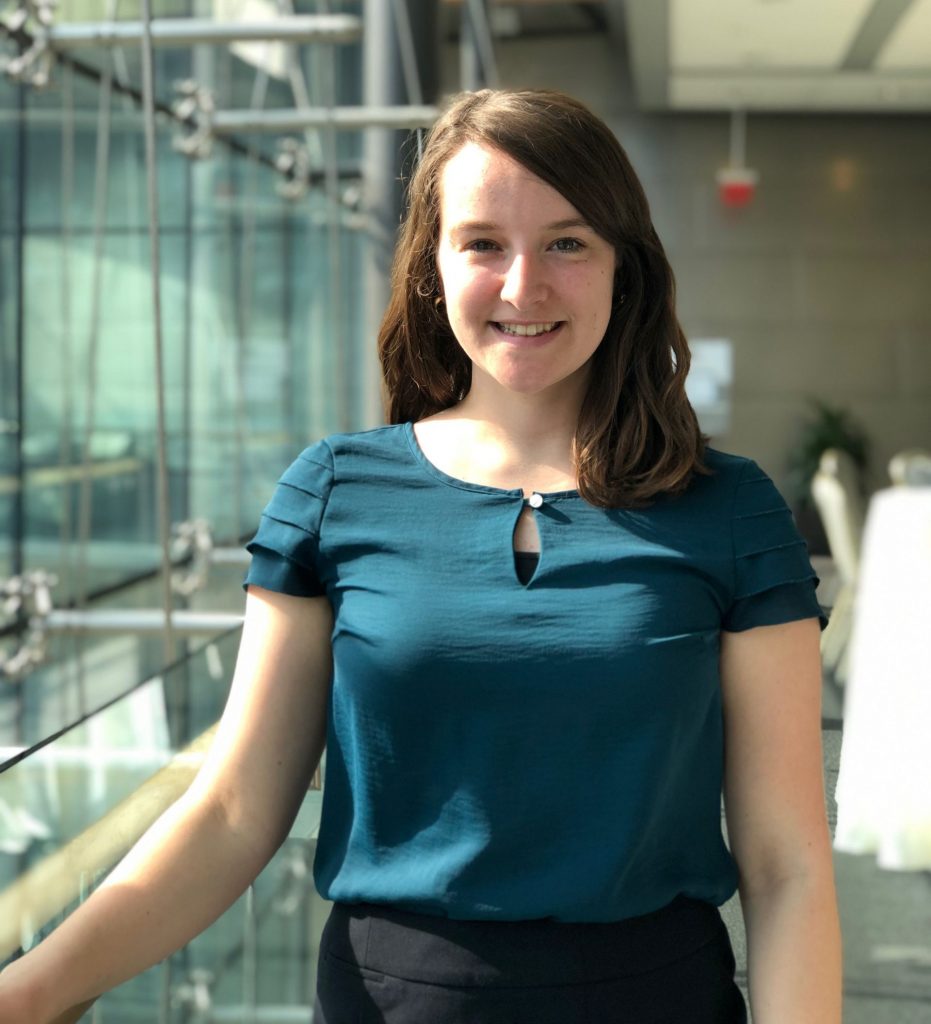Professor Michael Therien and graduate student Erin Viere received a Learning Innovation Jump Start grant in 2019 to redesign Chemistry 410: Inorganic Chemistry to incorporate active learning by creating hands-on modules and to consider the assessment strategy for the course. Although this course was interrupted by the pandemic, the course redesign allowed them to transition to teaching online.

Erin Viere wrote the following summary of their experience:
About the course redesign
Inorganic chemistry is traditionally a lecture-based course, which revolves heavily around Group Theory: mathematical representations of molecular symmetry and the resultant electronic properties. For CHEM 410: Inorganic Chemistry, a spring semester course for senior Chemistry majors, we sought to incorporate active learning modules with a continual learning assessment approach, thus realizing a course both more suited Duke undergraduates and, surprisingly, easily adaptable to an online-only learning model.
Our goal was to completely restructure and reimagine the traditional advanced inorganic curriculum to (i) include active-learning modules which inspire Duke undergraduates and (ii) update textbook focused reading assignments with lecture materials that highlight modern challenges in the field. The aim was to impact student learning through the integration of new lectures having both broad and modern relevance and in-class team-based problem-solving exercises.
This redesigned course spent the first half of the semester on traditional, advanced inorganic chemistry concepts such as nomenclature, symmetry and bonding, all of which laid the foundation for the second half of the course to explore new modules including: inorganic materials in photovoltaic devices, inorganic compounds in solar energy conversion and the role of inorganic chemistry in biological energy storage and release.
Flexible, continual assessment
This course featured two different types of continual assessment: a ~5 minute quiz at the beginning of each class (used for the first half of the semester) and a homework assignment that featured one graded and one ungraded question (used for the second half of the semester). Both forms of assessment were designed for flexibility; a maximum of 100 points were available to accrue over the course of the semester with the total number of 150 points available. This structure allowed students to miss point-earning opportunities when necessary without prior notice, an accommodation especially valuable for seniors who had graduate school and job interviews.
According to feedback, having a graded homework problem allowed students to spend more time thinking deeply about the material without the added stress of a quiz in class. One student wrote:
Graded homework problems were much more effective than pop ups at creating a continuous learning environment.
Course content and assessment during COVID-19
Though not originally intended for ease of transition into online-only learning, all classes were taught with a combination of PowerPoint slides and in-class problems, which allowed for a relatively seamless transition to Zoom-based learning. In addition, we were able to easily reformat our initially planned in-person final Poster Presentation to a Zoom-based “poster” presentation in which students designed one PowerPoint slide based on a inorganic chemistry topic of their choosing and presented it within groups assigned for peer review. One hundred percent of student respondents wrote that they agreed with the statement “I like having a poster session instead of a final exam at the end of the course” and 64 percent of respondents agreed that the breakout class discussions were valuable.
One student wrote:
I definitely learned a lot of valuable material during this course. I wish we had more discussion time because that helps me synthesize the material that I learned.
In this process we found that developing courses which meet students where they are and allow for maximum flexibility have the dual benefits of being both more engaging and facilitating effective online learning.
Future Plans
Future iterations of the course will also aim to include an even broader range of topics according to what most interests Duke seniors. When asked what topics they would like to see incorporated, the majority of students are interested in learning more about the role of inorganic chemistry in green chemistry (73 percent of respondents) and metals in medicine (55 precent of respondents).

